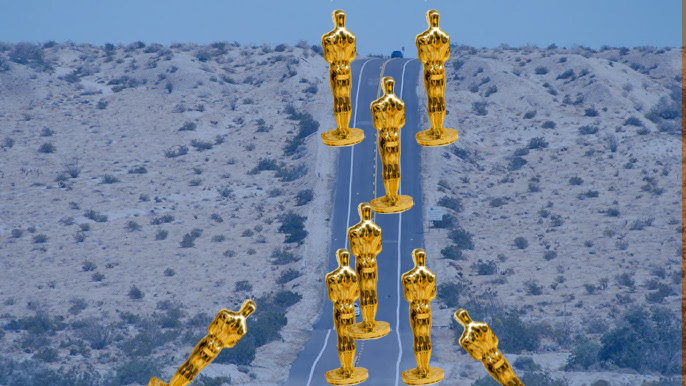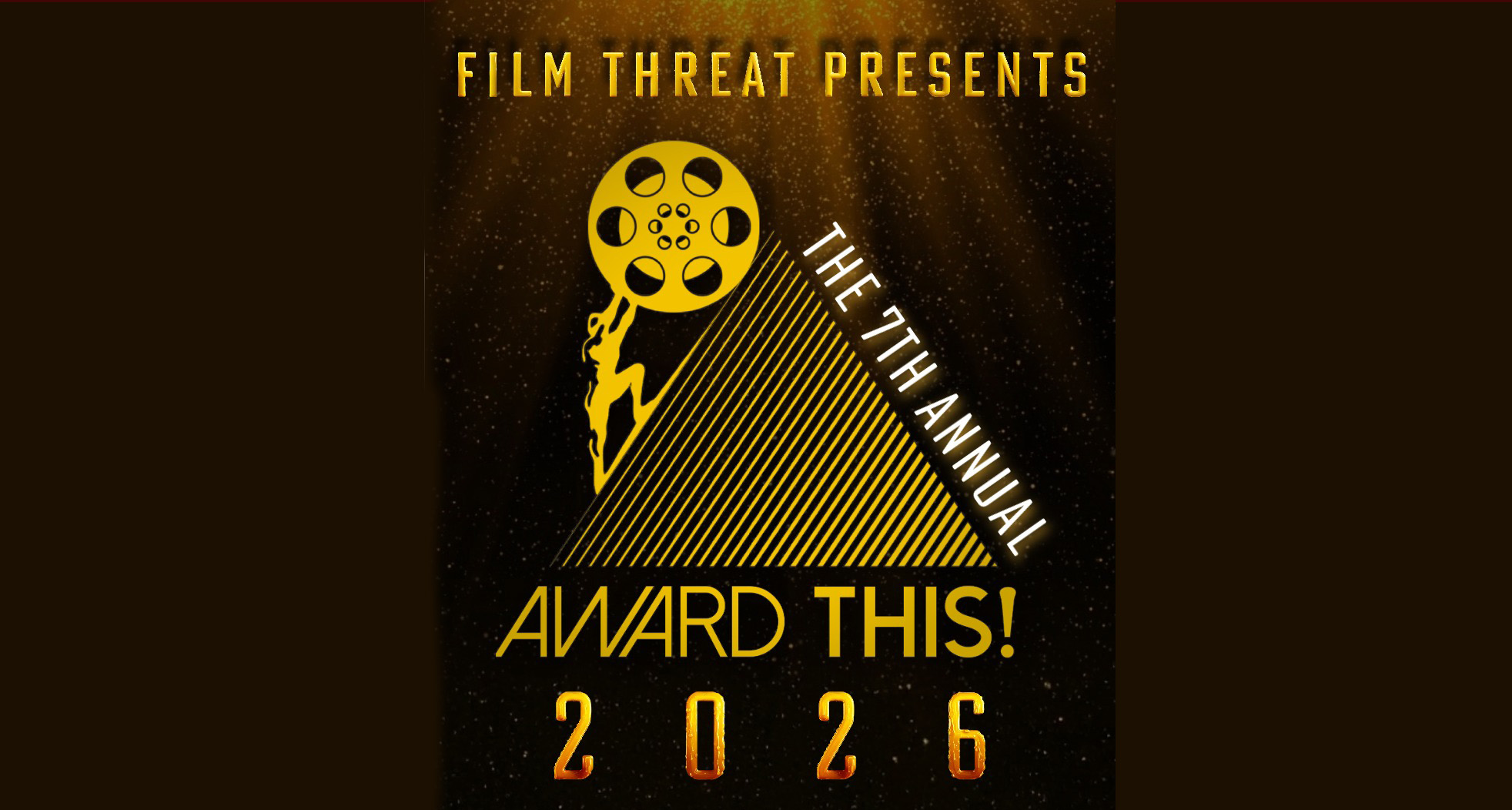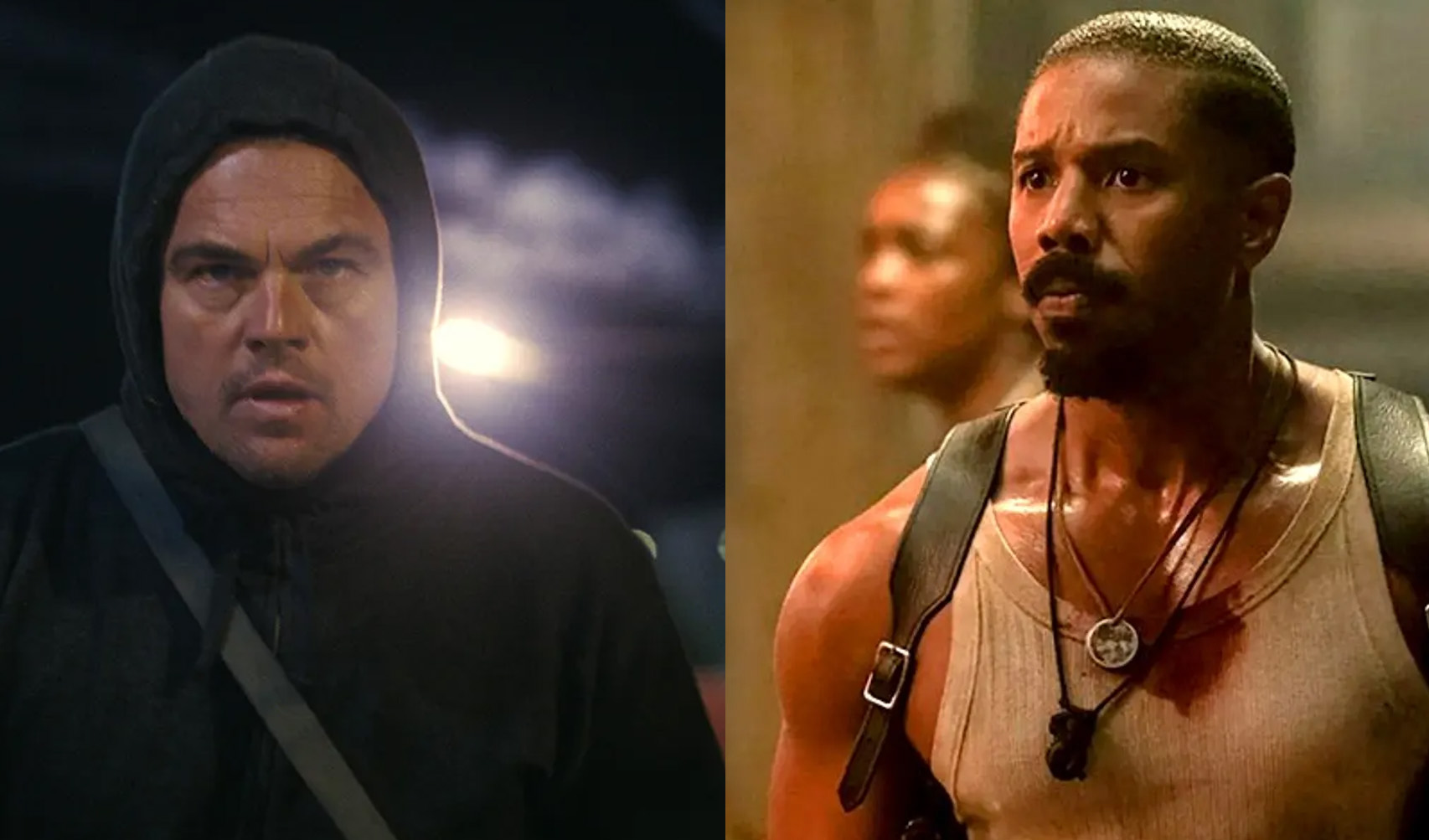[The Case For is an annual series – we’re starting with Best Director this is not an advertorial]
Someone on Twitter asked me recently why I so strongly believed that Best Director needed to be tied to Best Picture. After all, she argued, they really are two separate things. The producers receive the award for Best Picture and the director gets his/her own award. Who gets to take credit for the vision? Sometimes the producer, sometimes the director and sometimes even the actor is most responsible at the center of it all.
I suppose one reason I link director and picture is because since the early part of my life, before my dreams died, I wanted to be a filmmaker and in that dream I was an auteur — a writer/director. My appreciation of filmmaking has always resided with the director’s vision. Always. My heroes were Coppola, Scorsese, Hitchcock, Bigelow, Campion, Kubrick, Capra, Woody Allen and on and on it goes. The director led the way, always, in interpreting the story and devising film language to convey meaning. That is simply my own prejudice coloring my opinion about how the Oscars should be run. This is what bothered me most about last year’s choice for Argo. To have omitted the need for a directing nomination seemed, to me, the end of everything I knew or cared about with the Oscars. How could they not start with director?
Steve McQueen began his career by being put in a class for laborers at his high school. Dyslexic, with a lazy eye, and quite obviously black, McQueen was prejudged by the school as someone who would never accomplish anything more than construction work. Maybe he could have been a plumber. McQueen chafed against their low expectations of what he might achieve in life and headed, instead, towards art. He would eventually find himself an import at NYU, the former launching pad of Martin Scorsese, Joel Coen and Spike Lee. But McQueen found the academic instruction also too stifling. “They wouldn’t let me throw my camera up in the air,” he’d said. McQueen was determined that his vision be a unique one. He accomplished that with Hunger, and again with Shame, not playing by the predetermined rules of cinema but reinventing the form, disturbingly at times, playfully at other times. Even now, people don’t quite know what to do with Steve McQueen. He doesn’t fit the accustomed manner in which black directors are marginalized here in America — mostly given a condescending slap on the back for a job (almost) well done. He doesn’t fit in the way we romanticize directors from other countries either. Even his name, Steve McQueen, makes us think of the actor from the 1960s.
To dismiss 12 Years a Slave for the false narrative that all it says is “slavery is bad” is to miss what the film really is about, or at least partly about: the story of the women Solomon Northup encounters, the women he’s ripped apart from, the women he tries to protect but cannot. It is one of the most beautiful, suffocating things about McQueen’s film, and in other films he’s made. From the beginning of 12 Years a Slave, when Northup turns to meet a woman who’s reaching out to him sexually, to his playing the fiddle in order to bring a trace of calm to the room as a mother pleads in vain to prevent being separate from her children forever. It is about his trying to protect Patsy but ending up being in exactly the wrong position to protect her. Instead, he is forced into whipping her, a scene simplistically seen by many as “torture porn” — one of the most disappointing and ill-conceived notions about Oscar season 2013. That scene is pivotal because it requires Solomon to do that which many were forced to do, of course, whip their own sisters because they were ordered to do so. But it is more than that — to Solomon it’s the ultimate punishment. So far, he’s been able to keep his mind free of enslavement, outwardly projecting his resignation to being a slave while inwardly holding his dignity in reserve. But in being made to participate in the degradation, he is forced to let it all inside his head, to feel it corrupt his own value system, and to thwart his ability to protect women. In another film (a fictional one) Solomon might not be afforded this fundamental flaw, he would be the hero — he would have been able to spare Patsy that punishment, to bring her with him on his road back to freedom. But the reality was that he must abandon her, with her cries and her pleading, like so many other women he was forced to leave behind. That is the breathtaking thing about the final scenes of 12 Years a Slave — it wasn’t so much the catharsis of seeing Solomon Northup escape — it was just as much about the enduring soul-scorching torment of those left behind. Northup had no power because he wasn’t even considered a human being.
McQueen was never going to believe the high-school lie that he would only ever amount to a day laborer. Likewise, he would never have conformed to anyone else’s idea of what kind of artist he was going to be. What a remarkable thing, then, to look at his film’s subject — someone who had no such choices, even as a free man. Though prejudged by the color of his skin, McQueen lives in a world, and in a country, that has unlocked those doors. It is his choice, and his entitlement, to walk through them.
That Steve McQueen might break the long-standing history of America’s own closed doors to black filmmakers is ironic. In 86 years of Oscar history, only two black directors have ever even been nominated — and only one of them had a corresponding Best Picture nomination. McQueen has already become the first black producer to win the Producers Guild award, the first to win the Golden Globe and the Critics Choice. Many believe he will also win the Oscar, alongside fellow producer Brad Pitt. That he could also perhaps win Best Director seems almost inconceivable. Though they omitted the director from last year’s Best Picture win, there is no doubt that in Hollywood if you win Best Director you hold a power position, even it only lasts for a year or two. That is a luxury never afforded to any black director, not even Spike Lee.
The scenes that linger from 12 Years a Slave are not pretty ones. You often hear people say that it is good but they can’t sit through it again. It is too hard, it is too painful. We don’t go to the movies to bear witness to such horrors. Is it that we can’t really look at the sickening foundation the United States, and other countries, were built on? After all, Spielberg’s Schindler’s List isn’t a walk in the park either but we can always say — we were never Nazis. To look fully and completely at 12 Years a Slave is to look ourselves as a nation. Who we once were, who we still remain in many ways, in some regions, the ugly truth we never really wanted to fully own in Hollywood. For decades, Gone with the Wind was the last word on slavery when it comes to voting for Best Picture. The heart wants it wants and it rarely wants to love something so ugly.
McQueen’s painterly vision imprints his shots so vividly in the mind’s eye they are unshakable. Patsy, with her bruised eye, staring vacantly outward, the vibrant young girl drained slowly from her. Solomon’s eerie walk to the market, alone but collared, surrounded by what looks like the natural world. But McQueen constantly reminds us how unnatural that world was because as Solomon makes his way through the weedy marsh he comes upon a lynching, a private, sickening scene where his collar becomes his only identification, his only escape. Patsy laid back as Epps violates her, as he’s done so many times, probably starting at a very early age, a sexual need that so closely aligned with violence Patsy may never know the pleasures of real sex, born out of love and desire, as the woman in the opening scene does. McQueen defines the perverse nature of nature in that one scene — the need is too great, the violence is unbearable, they are human, they are inhuman, they must be destroyed, they can’t be destroyed.
At the beginning, just the waves in the water in the wake of the slave ship. At the beginning, the blood from the berry that Solomon will use to write a crude letter to help him escape. The life of a free black man, one day walking around truly free, buying groceries with his family, being treated equally — contrasted with the life of a slave who notices him, follows him into the store and is snapped back by his master. The two worlds spilling over each other hints at Solomon’s fate. The Disney bright colors are deceptive. When we move into Georgia everything seems more natural. The free Solomon Northup was the surreal rarity in mid-19th-century America. The enslaved Solomon Northup very much more the norm. This message is transmitted with color, light and costumes — sewn together magnificently by a man who still has the luxury of viewing film as art, not as a commodity, not as fantasy fodder for numb Americans who are always on the hunt for a way out of the doldrums of ordinary life.
McQueen is not interested in fantasy. He’s into exposing the raw nature of human beings — that rawness he brings to scenes that sets all five senses alight. We can smell the sweat. We can taste the tears. The spectrum of the human experience, not just the slave and master experience, vibrates throughout 12 Years a Slave, pain and heartache, jealousy and obsession, ownership and sadism. We don’t get off light here, but we are fully immersed in the reality of nothing less than the most shameful time in American history. Worse, our country was built on it. We wouldn’t have become the empire we are today without slavery. And yet, and yet. We want to escape this, somehow. Even if 12 Years a Slave manages to win Best Picture as some pundits are predicting, that flies in the face of what we know about Oscar voters now.
The last film to win on a preferential ballot that didn’t celebrate the central white male figure was The Hurt Locker. In it, Kathryn Bigelow dared to tell the story from the point of a view of a war machine, a man addicted to the thrill of war. The movie made no money yet she made history by becoming the first woman to direct a film that won Best Director and Best Picture that did not illustrate how great America is, and how awesome we are as human beings. No, it was afforded the luxury of being truthful.
But since then, The King’s Speech, The Artist and Argo all revolve around a man who makes good just when you thought the world was counting him out. Solomon Northup can’t be that guy. The color of skin and the era when he lived prevent that very scenario from playing out. He would have to find the one white man who would begrudgingly help him, knowing how dangerous that might be. Our Oscar voters can’t relate to that so much. They need to believe that we are all good at heart, that this really didn’t happen and if it did happen it happened a long time ago. We’ve paid for it. We’ve suffered for it. It’s over. But is it?
McQueen the painter has made a film so beautiful it almost hurts to look at it. McQueen the director has told a story, the story of an American hero, one that has been all too long uncelebrated. There are many of these buried heroes waiting to be uncovered. McQueen the man expressed the frustration and sorrow of the fundamental role of man as protector inflicting such horrific crimes upon women. McQueen is the first to really go there where sex slavery was concerned. Perhaps it is not something we think of when we think of slavery. But for women, controlling their own bodies has been and remains an ongoing battle for power.
There isn’t a more worthy film than 12 Years a Slave to win Best Picture of 2013. For all of the reasons the Oscars were invented it deserves the honor. For all of the ways Oscar has given itself over much too easily to films that depict our idealized selves, it deserves it. For the beauty of McQueen’s eye on a world most of us want to disappear, for the cries and whispers of those who are gone and buried with no markers, for the nameless, the captured, the murdered, the dead it deserves it. Maybe something as trivial as winning an Oscar won’t change the past, the present or the future, but if statues are the stuff that dreams are made of, sweet dreams are made of this.














